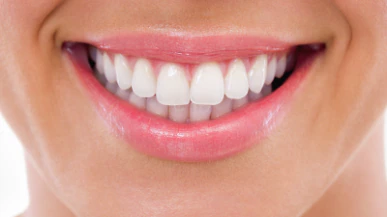No toothbrush? Here are some ideas to help you out…
28-12-2022No toothbrush? Here are some ideas to help you out…
You're away for the weekend and forgot your toothbrush? Don't panic!
Here are 5 tips to help you…
Tip #1: Rinse your mouth with water
After meals, bacteria on the teeth create an acidic environment that promotes decay. Rinsing your mouth or drinking water frequently will remove some of the bacteria from your mouth and keep your breath fresher.
Tip #2: Eat raw vegetables
Chewing fibrous foods such as carrots, apples or celery sticks is a good way to clean the surface of the teeth and remove any food debris that may have stuck to them.
Tip #3: Drink a cup of green tea
This drink has antibacterial, anti-inflammatory and antioxidant properties! It eliminates bacteria in the mouth and helps reduce inflammation, protecting both teeth and gums.
Tip #4: Eat cheese
Finish the meal with a piece of hard cheese (cheddar, Gruyere, etc.), as it is alkaline and therefore neutralises the acidity of saliva and does not contain sugar (lactose). The fats protect the teeth against acidity and the caseid proteins are anti-cariogenic. In addition, its calcium and phosphorus strengthen the enamel.
Tip #5: Chew gum with Xylitol
A sugar-free gum with Xylitol can help protect teeth from decay. Xylitol is a natural sugar from the birch tree that is antibacterial and neutralizes acids in the mouth, actually protecting tooth enamel.
While we're at it, let's bust some myths:
- Lemon "disinfects" the mouth
Lemon does not remove bacteria from the mouth! Its acidity is even harmful because it demineralises the protective enamel of the teeth.
- One apple equals one brush
Although apples are not a bad choice, nothing beats brushing your teeth! However, biting into a fruit stimulates salivation, which helps to remove harmful bacteria.
- Sugar-free gum protects against cavities
Sugar-free gums do not cause tooth decay, but have no protective effect. Only gums with xylitol are antibacterial and protect tooth enamel. However, chewing gum increases saliva production and can dislodge food debris left on the teeth.


Ask a question or leave a comment (0)